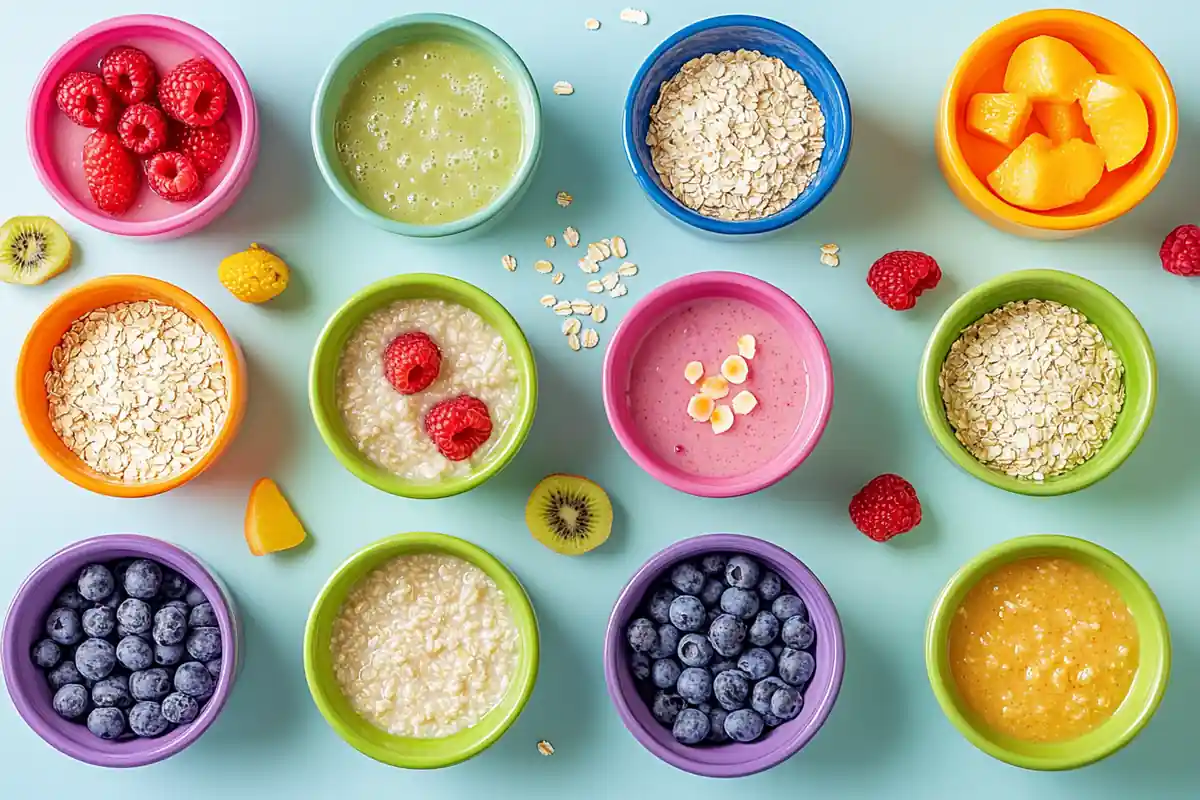This article explores the best type of porridge for babies. We’ll discuss different grains and offer guidance for feeding your little one. Let’s find the perfect baby porridge!
Understanding Baby Porridge Needs
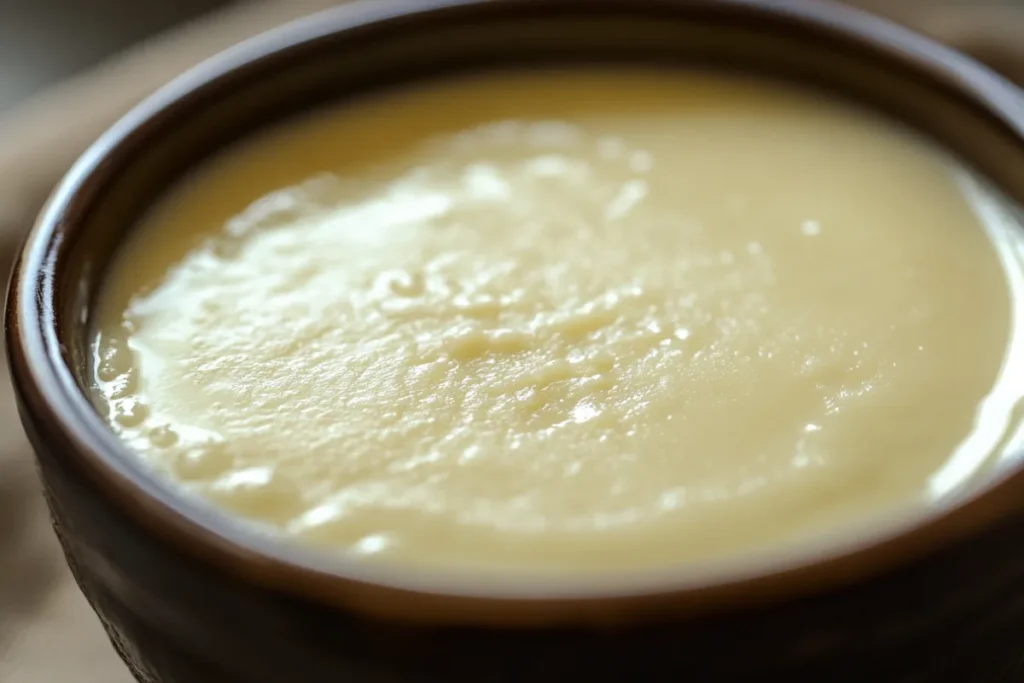
Choosing the right porridge for your baby is very important. Babies have specific nutritional needs. Porridge provides essential energy and nutrients. It’s a good first food that is easy to digest. Baby porridge must be smooth and easy to swallow. Therefore, selecting the proper porridge is very important.
Why Porridge is Good for Babies
Porridge is a fantastic first food. It is gentle on a baby’s stomach. Also, it provides needed carbohydrates for energy. Porridge is easily mixed with breast milk or formula. This makes it simple for babies to eat. Many porridge options can be fortified with nutrients. So, this helps fill any gaps in their diet.
Different Types of Grains for Baby Porridge
Several grains work well for baby porridge. These grains include rice, oats, and barley. Each grain has different qualities. Some are easier to digest than others. Therefore, it is good to learn about each. Understanding the options can help with your choice.
Rice Porridge for Babies
Rice porridge is a common choice for starting solids. It’s gentle and very easy for babies to digest. Brown rice and white rice porridge are popular. However, brown rice offers more fiber than white rice. Therefore, it is important to take this into account. Baby rice porridge is usually a good option.
Making Rice Porridge
Rice porridge is very easy to prepare. You can use rice flour or cook whole grains. Then, blend them to a smooth consistency. Always mix the porridge with breast milk or formula. This creates a texture suitable for babies. You can also use water, but milk adds extra nutrients.
Benefits of Rice Porridge
Rice porridge is usually hypoallergenic. It is less likely to cause an allergic reaction. This is especially important when starting solids. Furthermore, baby rice porridge is generally easily accepted by babies. It also provides carbohydrates for energy. Consequently, many parents choose it for their baby’s first food.
Oat Porridge for Babies
Oat porridge is another excellent choice for babies. Oats provide fiber and other beneficial nutrients. Baby oat porridge is very satisfying. Therefore, it can help babies feel full and happy. Porridge made with oats is very easy to prepare at home. It’s also available in stores for your convenience.
Preparing Oat Porridge
To make oat porridge, use finely ground oats or oat flour. Cook the oats with water, breast milk, or formula. Then, make sure to mix it until it reaches the right smoothness. Baby oat porridge should be smooth and lump-free. This ensures that it’s safe for your little one to swallow.
Advantages of Oat Porridge
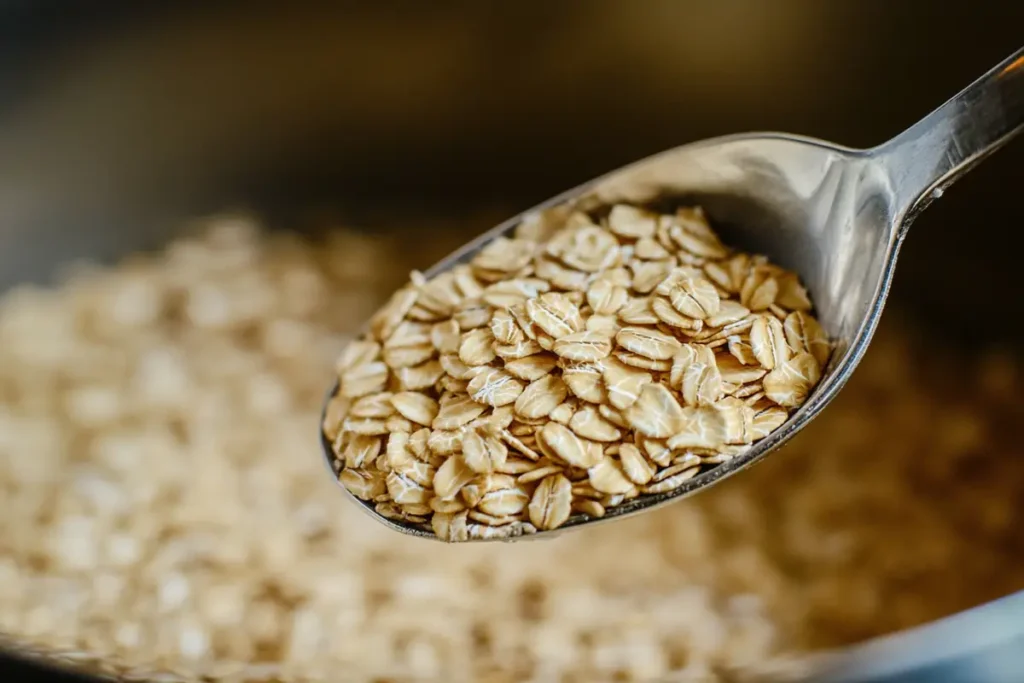
Oat porridge is often a good source of fiber for babies. It also contains essential nutrients. These nutrients support your baby’s growth and development. Baby oat porridge is a good option to give some variety to your baby’s diet. In addition, the creamy texture makes it appealing for many infants.
Barley Porridge for Babies
Barley porridge is another great option. It’s good for babies who need more nutrients and fiber. However, be sure that your baby doesn’t have a gluten intolerance as barley does contain gluten. Baby barley porridge can add another layer of texture and taste. Therefore, it can be a helpful choice to include.
How to Cook Barley Porridge
To cook barley porridge, you can use barley flour or finely ground barley. Then, cook it with liquid until it’s soft. Always mix it well to ensure a smooth texture. Baby barley porridge can be a good addition to a varied diet. Ensure the porridge is not too thick, or the baby may have trouble swallowing it.
What Makes Barley Porridge Stand Out
Barley porridge offers a good source of fiber. Moreover, it includes vital nutrients. These nutrients help with a baby’s growth. Baby barley porridge can be a good choice for babies who tolerate it well. However, be mindful of any signs of intolerance or allergies. Always consult with your pediatrician if you are unsure.
Other Grains for Baby Porridge
Besides rice, oats, and barley, there are other grains. These include quinoa, millet, and amaranth. These grains can provide extra nutrients. However, they might not be as common for first foods. However, they are certainly worth considering as your baby grows and develops.
Quinoa Porridge
Quinoa porridge is a fantastic choice for baby porridge. It is protein-rich. Quinoa also has essential nutrients needed for growing babies. Baby quinoa porridge can be an excellent alternative to other grains. It is very easy to digest for many babies. Furthermore, it’s naturally gluten-free.
Millet Porridge
Millet porridge is another good option. It is very mild and easy to digest. Baby millet porridge is also gluten-free. This makes it another option for those worried about gluten. Millet porridge is also packed with helpful nutrients. It is an excellent addition to a baby’s diet.
Amaranth Porridge
Amaranth porridge is very similar to quinoa. It is very nutrient-rich. Baby amaranth porridge is easy to digest. This makes it another great choice. It also provides important proteins and nutrients. It can be a good choice for babies who enjoy the taste.
Preparing Baby Porridge
Preparing baby porridge involves a few simple steps. Start with clean ingredients. Always use a smooth and safe texture. There are also several things to keep in mind. Let’s explore the best practices when preparing baby porridge. It’s important to do it correctly.
Using Breast Milk or Formula
When preparing baby porridge, using breast milk or formula is good. These liquids provide extra nutrients. In addition, they are also very familiar to the baby. Using these familiar liquids can help with acceptance. Moreover, it makes the porridge more nutritionally balanced.
Starting with Small Amounts
When starting porridge, begin with very small amounts. Just a teaspoon or two is enough. Allow your baby to adjust to the new texture and taste. Gradually increase the quantity as they get used to it. This cautious approach helps ensure smooth transition to solids.
Watching for Reactions
Always pay attention to your baby’s reactions. Look for any signs of allergies or intolerance. If you see any issues, stop feeding and talk to your pediatrician. It’s vital to introduce new foods gradually. This way, you can monitor your baby’s response.
Making Porridge at Home
Making baby porridge at home is easy and cost-effective. You can control the ingredients. This can ensure your baby gets the best. It’s also a good way to make sure there are no hidden additives. Making porridge at home is often healthier for babies.
Simple Recipes for Baby Porridge
There are many simple recipes for making baby porridge at home. Start with a single grain. Then, gradually add other grains or flavors as the baby grows. Be sure to always prioritize your baby’s needs and preferences. This ensures that the baby gets the correct nourishment.
Storing Homemade Porridge
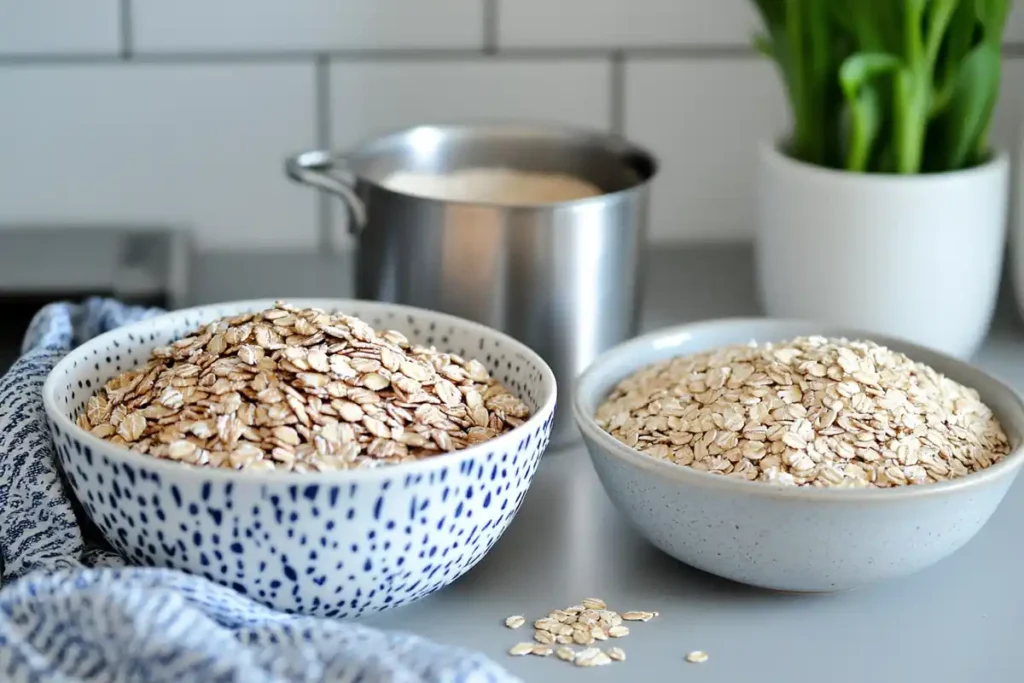
When you make porridge at home, store any leftovers properly. Use airtight containers in the refrigerator for up to 48 hours. Alternatively, you can also freeze small portions for future use. Make sure that all stored porridge is heated thoroughly before feeding. This is a good way to make sure your baby always has fresh, homemade food.
Buying Ready-Made Baby Porridge
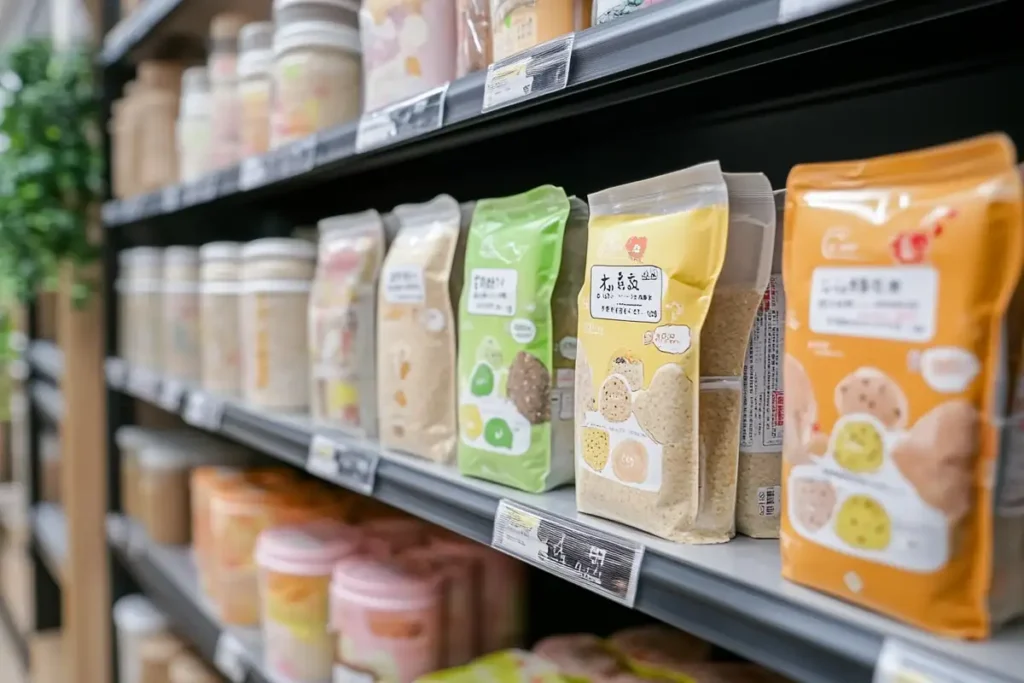
Ready-made baby porridge is very convenient. It’s a good choice for busy parents. It is also easy to find in most stores. However, it’s vital to check the ingredient list carefully. Try to avoid porridge that has artificial additives or extra sugars.
Checking Ingredients
Always read labels when buying ready-made porridge. Make sure that it doesn’t contain any unnecessary additives or sugars. The best porridge for babies is simple and natural. Ingredients should be clearly listed and easy to understand.
Choosing the Right Brand
Many brands offer good quality baby porridge. Research and choose a brand you trust. Look for porridge that is nutritious and gentle on the stomach. Reading reviews from other parents can also be helpful. This can help you decide what to buy.
Safety Considerations
Safety is very important when feeding porridge to your baby. Always prepare and store food properly. This helps avoid problems. Furthermore, it helps protect your baby from any issues. It’s very important to take steps to ensure safety.
Avoiding Allergens
When introducing new porridge, do it carefully. This helps you notice potential allergic reactions. Always introduce one new ingredient at a time. Monitor for any symptoms, such as rash or trouble breathing. Seek help from your doctor if you have concerns.
Choking Hazards
Always ensure the porridge is smooth and lump-free. This is very important to prevent choking. Never leave a baby alone while feeding. Make sure the porridge is the correct consistency for their age. Always take the necessary safety measures to ensure your baby’s wellbeing.
Frequently Asked Questions about Baby Porridge
Here are some common questions about baby porridge.
What porridge should I give my baby?
The best porridge to give your baby depends on their age and needs. Rice, oat, and barley porridge are good choices to start with. These are easy to digest. Always choose porridge that is smooth and simple. It also should have no added sugars or additives.
Which porridge is best for children?
For older children, you can still give oat and barley porridge. These offer more fiber and nutrients. You can also try other grains like quinoa or millet. Always ensure that porridge is part of a balanced diet. Provide a wide range of foods to ensure good nutrition.
What is the best form of porridge?
The best form of porridge is one that is smooth. Also, it should have the right consistency for the baby. Home-cooked porridge allows you to control the ingredients. This ensures a pure and nutritious meal. Ready-made porridge should also be good quality, with simple ingredients.
What is the best grain for baby porridge?
Rice, oats, and barley are great starting grains. They are gentle and easy to digest. Other grains like quinoa and millet also have their benefits. However, they should be introduced after your baby has adjusted to simple porridges. Always prioritize your baby’s comfort and needs.

